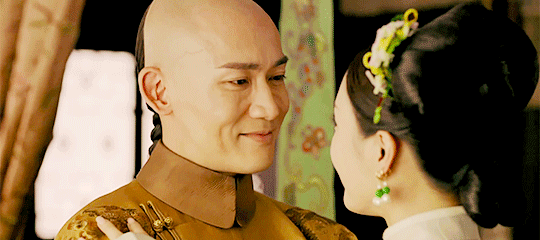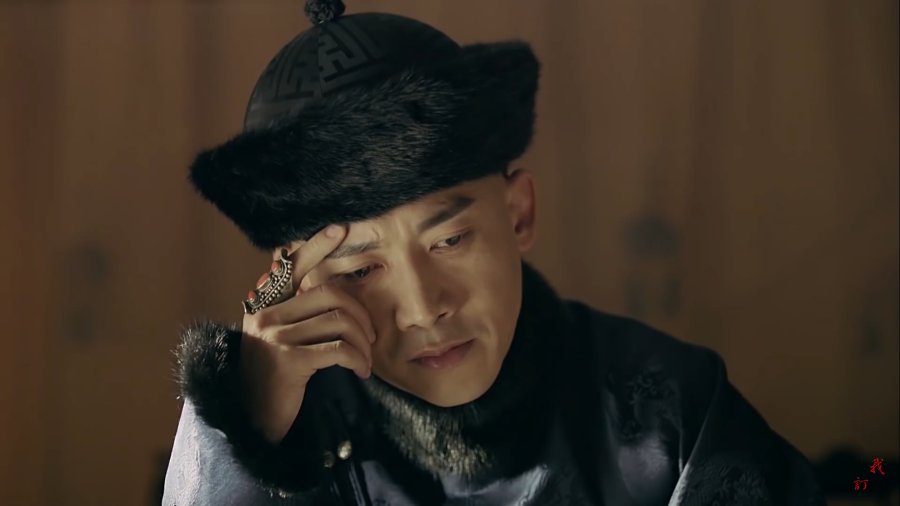 7 Interesting Facts About Wallace Huo
7 Interesting Facts About Wallace Huo
The Story of Yanxi Palace was a phenomenal success in 2018. It was not only popular in China, but popular among overseas viewers. The thing that touched my heart the most in this drama was the relationship between Emperor Qianlong (Nie Yuan) and Empress Fucha (Qin Lan). Their relationship was so heartwarming with some cute and funny moments thrown in but was also heart wrenching. I was so in love with their relationship in the drama that I started to wonder just how accurate their relationship in the drama was to actual history. So, I started researching and was amazed about what I'd discovered and I want to share it with you guys. :) So here you all go, the REAL Love Story of Emperor Qianlong & Empress Fucha. Enjoy! ^-^
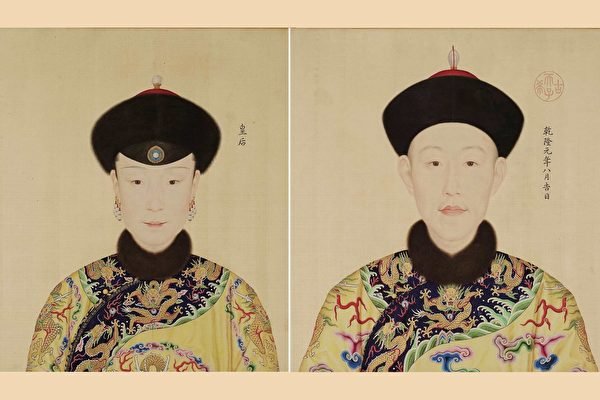
(A portrait of Empress Fucha and Emperor Qianlong in the Cleveland Museum of Art)
WHAT REALLY HAPPENED IN HISTORY...
THE BEGINNING
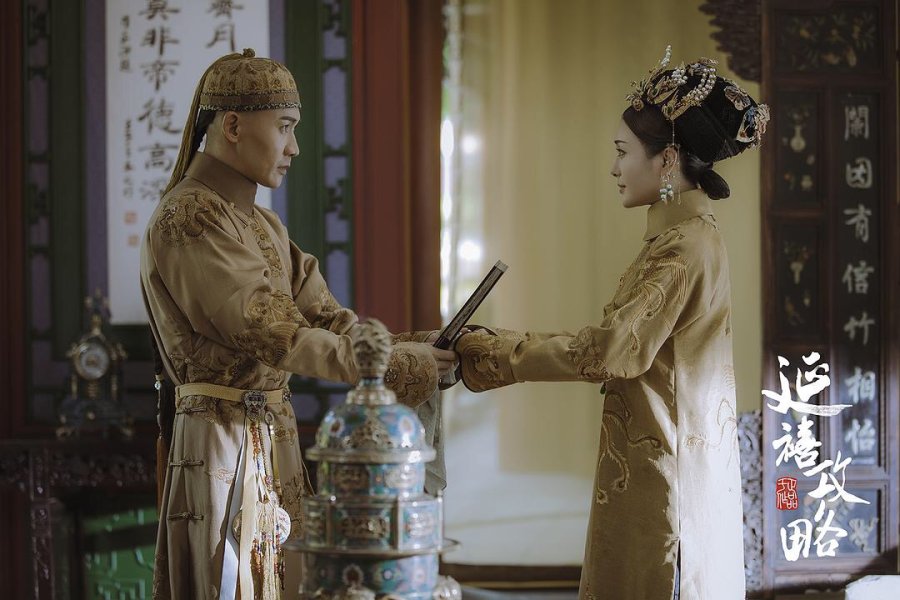 Lady Fucha came from a prestigious background and was described as a beautiful and talented lady. One time when she was young, her future father-in-law (Emperor Yongzheng) visited her family's home and was impressed by her calligraphy and greatly praised her. Later on, Lady Fucha was picked by the Yongzheng Emperor to be the wife of his 4th son, named Hongli. Fucha was 15 and Hongli was 16 when they got married in 1727. In their married life, they enjoyed reciting poems, painting, and playing the guzheng (an ancient zither) together. When a drought struck the country, they prayed together for the blessings from the Heaven. When the rain and snow finally came, they celebrated together.
Lady Fucha came from a prestigious background and was described as a beautiful and talented lady. One time when she was young, her future father-in-law (Emperor Yongzheng) visited her family's home and was impressed by her calligraphy and greatly praised her. Later on, Lady Fucha was picked by the Yongzheng Emperor to be the wife of his 4th son, named Hongli. Fucha was 15 and Hongli was 16 when they got married in 1727. In their married life, they enjoyed reciting poems, painting, and playing the guzheng (an ancient zither) together. When a drought struck the country, they prayed together for the blessings from the Heaven. When the rain and snow finally came, they celebrated together.
When the Yongzheng Emperor passed away in 1735, Hongli ascended the throne as Emperor Qianlong and Lady Fucha became Empress. 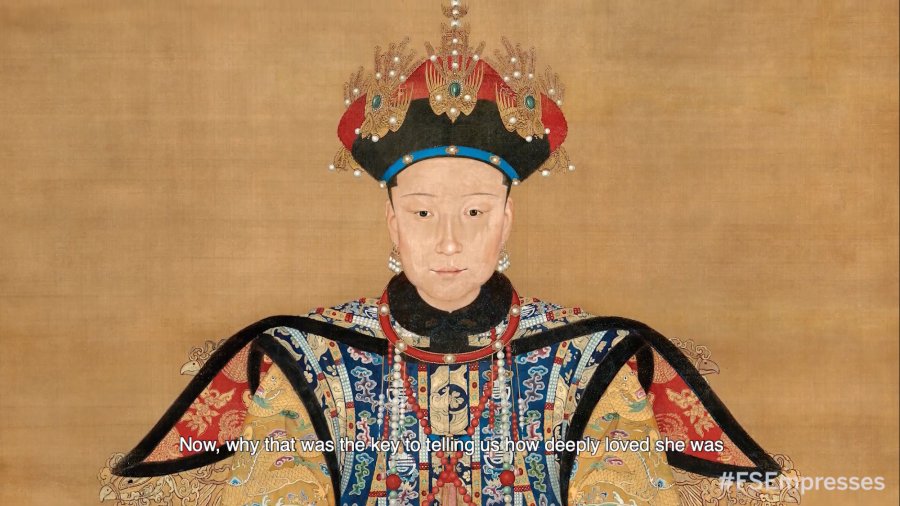
(A portrait of Empress Fucha in the Smithsonian's National Museum of Asian Art)
AS EMPRESS
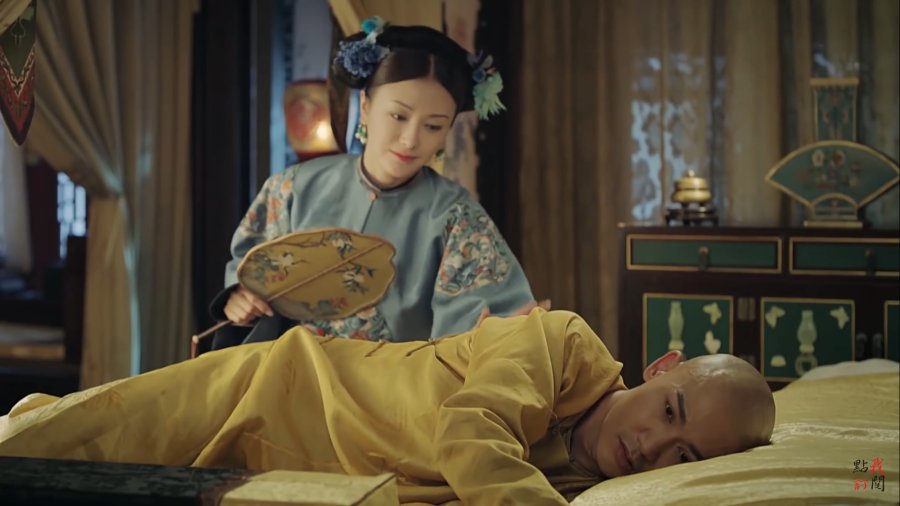
As Empress, Fucha was still adored and favoured by Emperor Qianlong for many reasons. For one, the Empress's family was a great help to the Emperor in the political court. Notably, her younger brother Fuheng (played by Xu Kai in the drama), was a brilliant politician and military strategist. Also, the Empress was described as a virtuous and frugal person. Unlike most empresses, instead of wearing jewelry, she would wear artificial flowers on her hair to save money. Finally, she took care of the Emperor well. When he was at one point infected with chickenpox, she would personally take care of him day and night. Since chickenpox was very contagious, everyone in the palace did not dare to be near the Emperor. But the Empress still did even though she knew that she could be at risk of getting it too. For all these reasons, Qian Long greatly cherished and was grateful to his Empress.
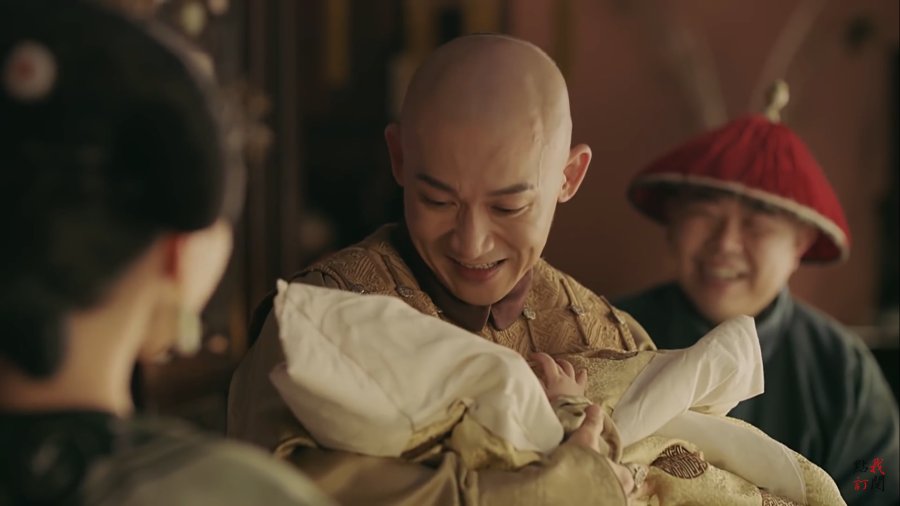
Additionally, arguably what made the Emperor love Empress Fucha the most is that she gave birth to a gifted son for him. Their son, Yonglian, was described as a charming and intelligent child. Yonglian was conferred by the Emperor to be Crown Prince (a prince that will be Emperor in the future) already at a young age. From this, it shows that the Emperor greatly favored and had high hopes for Yonglian.
TRAGEDY AFTER TRAGEDY
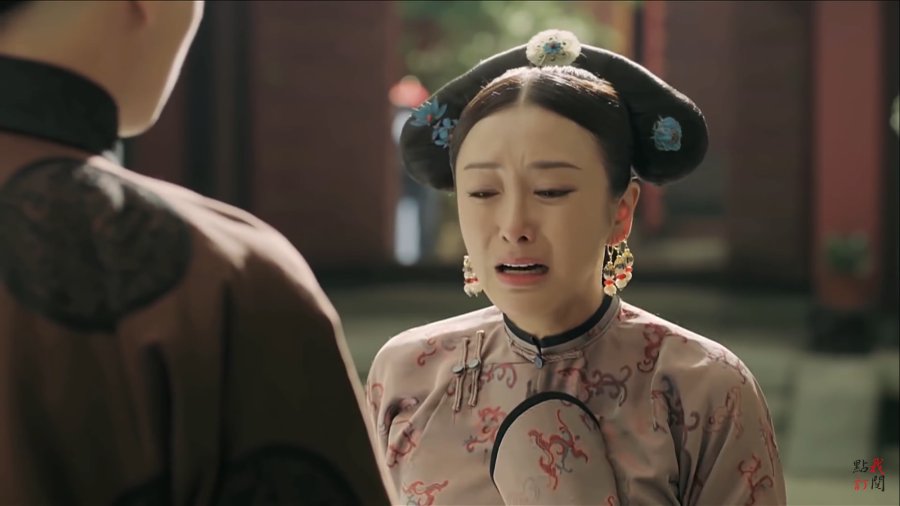 It would seem that the Empress had everything in her life that any imperial women of that time would have dreamed. Unfortunately, a tragedy struck that would forever change the Empress. Yonglian was only 8 when he tragically passed away due to smallpox. The death of Yonglian completely broke Empress Fucha's heart. She still did her duties as Empress and remained composed and virtuous but deep inside she was filled with sorrow as her son's death still lingered in her mind for many years. Although the Empress hid her sadness well from the public, she couldn't hide it from the Empress Dowager (her mother-in-law) who was able to notice just how deeply saddened she was. The Empress Dowager once noted that ''the Empress's eyes always look sad''.
It would seem that the Empress had everything in her life that any imperial women of that time would have dreamed. Unfortunately, a tragedy struck that would forever change the Empress. Yonglian was only 8 when he tragically passed away due to smallpox. The death of Yonglian completely broke Empress Fucha's heart. She still did her duties as Empress and remained composed and virtuous but deep inside she was filled with sorrow as her son's death still lingered in her mind for many years. Although the Empress hid her sadness well from the public, she couldn't hide it from the Empress Dowager (her mother-in-law) who was able to notice just how deeply saddened she was. The Empress Dowager once noted that ''the Empress's eyes always look sad''.
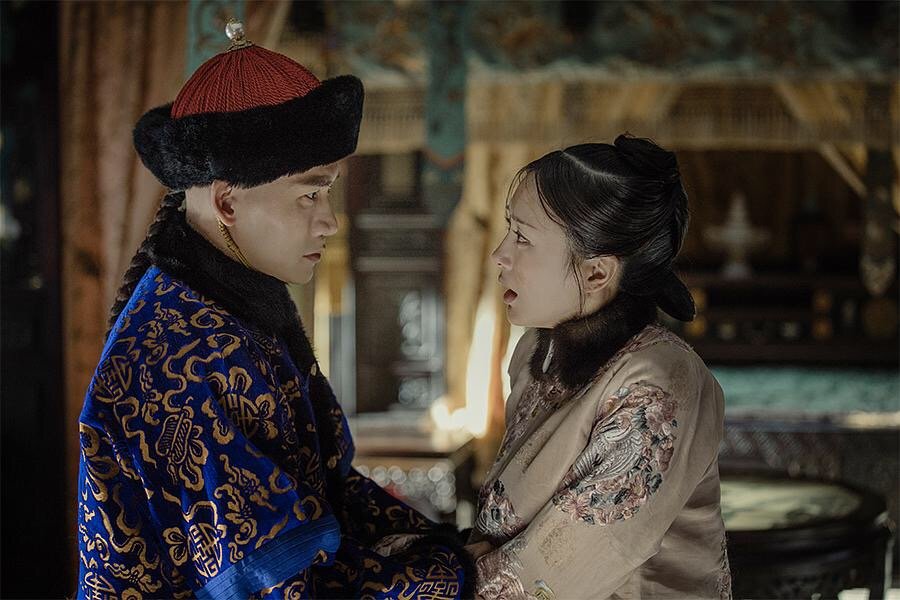
After years, the Empress finally gave birth to another prince named: Yongcong. The Emperor was so happy to have another son bore by the Empress that just like their previous son, Emperor Qianlong had high hopes for Yongcong and conferred him as Crown Prince not long since his birth. Things were looking up for the Empress. She had regained the very thing she lost.
But fate was cruel to her once again. In less than 2 years, Yongcong died from smallpox just like Yonglian. This was the breaking point that completely destroyed her spirit. The death of Yongcong not only made her depressed, but this time, it affected her health as well. Her health was quickly deteriorating.
DEATH
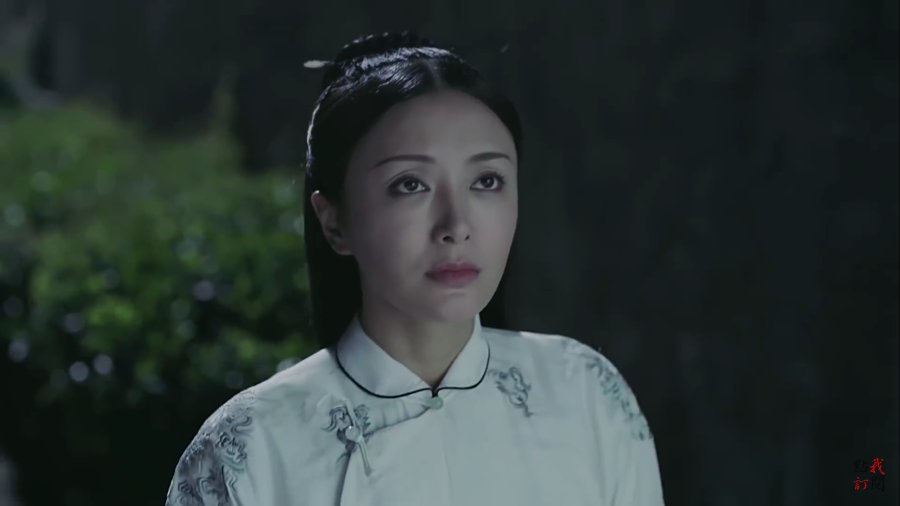
The Emperor wanting to cheer her up, decided to go on a tour around China with her, his mother, and a few concubines by ship. The Empress looked very happy on the tour which relieved the Emperor. While they were feeding the fishes, Empress Fucha mentioned a literary line from a famous philosopher:
"You are not a fish, then how do you know what a fish enjoys?"
The Empress basically meant "does all people in the country think that she's very happy as empress? Only she knows whether she's really happy". That's when the Emperor realized that she was only pretending to be happy because she didn't want to disappoint him or her mother-in-law. In actuality, however, she had never even recovered a little from her son's death.
While on the trip, the Empress suddenly started to feel sick. As soon as the Emperor heard, he wanted to stop the trip so the Empress could rest. But the Empress didn't want to ruin the trip for others because of her and insisted for the Emperor to keep going. However, her condition quickly worsened and she was now extremely weak.
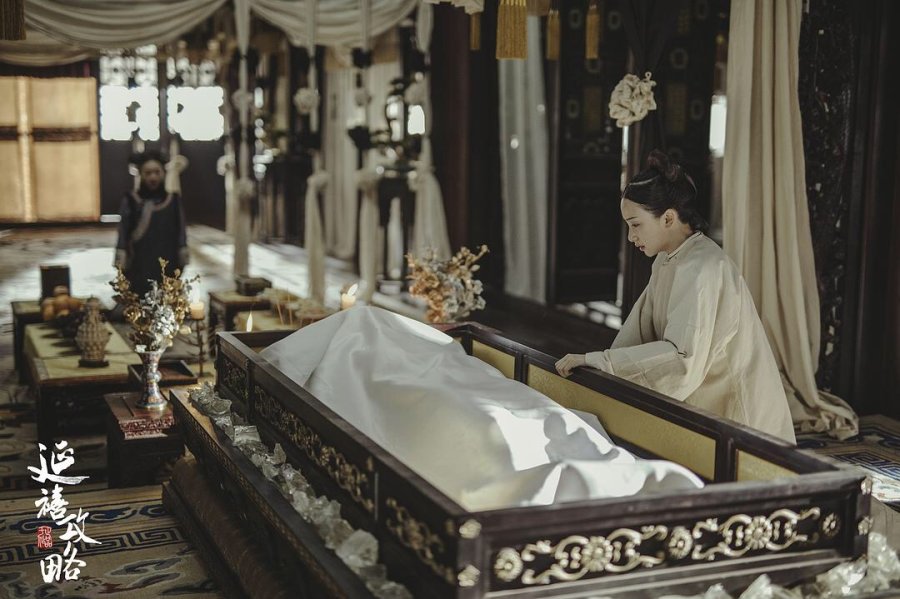
On April 8th 1748, Empress Fucha died at age 37, three months after her son's death. The Emperor personally escorted the ship carrying her body back to the palace without rest. The Empress's funeral was lavishly done.
AFTERMATH
The Emperor was deeply affected emotionally by the death of his wife and did not take it well. When he found out that two of his sons did not mourn as sadly at the Empress's funeral he was extremely angry and declared neither of them will be the potential heir the throne. When the Emperor found out that court officials shaved their hair during the mourning period of the Empress's death, they were heavily punished and some were even executed as it was considered highly disrespectful to shave one's hair during the mourning period of someone's death in ancient Chinese customs. Additionally, he ordered that no other concubine can live in Empress Fucha's palace and the possessions in there shall be left untouched. Finally and most importantly, highlighting just how much Empress Fucha meant to him, the Emperor did not designate a new Empress for a long time as he was still gravely heartbroken over her death. The Emperor also wrote hundreds of poems throughout his life in memory of her. In one poem he wrote:
"If I had known the death of our son would make you die of sorrow I would never let you bear him."
This meant that he would choose her over his son, which was a big deal back then as sons were greatly desired more than anything else and they were valued even more than women.
He would often visit her grave with longing for her. Whenever there was a major event he would go to her grave and tell her all about them. When the Emperor was in his old age, he wrote:
"Every autumn, I can’t help but cry when I pay homage to you. I am ageing and I don’t wish to live till a hundred-year-old. It’s comforting to know that we will be reunited in less than twenty years."
It is said that the Qianlong Emperor remained heartbroken to the end of his days.
CONCLUSION
Emperor Qianlong and Empress Fucha had a beautiful romance filled with love and tragedy. In imperial Chinese history, it is hard to know exactly the relationship between a lot of the emperors and their empresses as not a lot of Chinese imperial history was well documented compared to like British royal history. But for these larger than life figures, we can see that they truly had a devoted relationship. In history, Qianlong had a long life, he had a lot of concubines but the one that made the deepest impression on him and the one he loved the most was indeed Empress Fucha. Qianlong and Empress Fucha were married for 22 years and after her death, he continued to love her for 51 more years. Making this one of the most epic love stories in Chinese history.
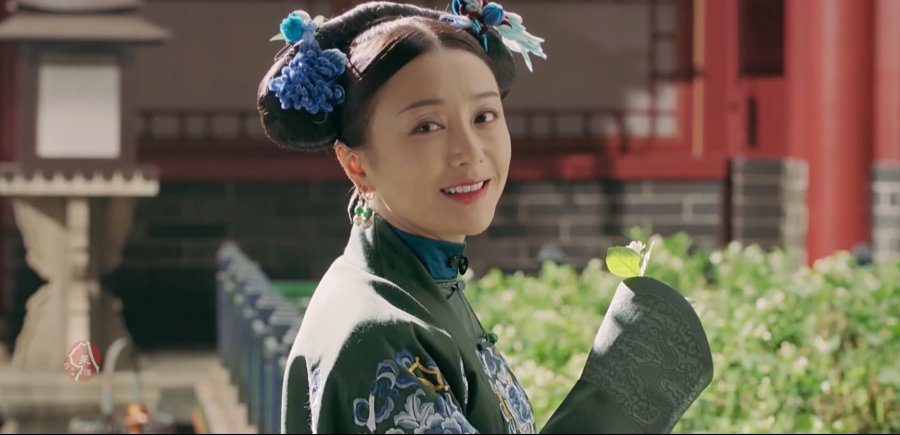
HOW ACCURATE IS YANXI PALACE COMPARED TO ACTUAL HISTORY?
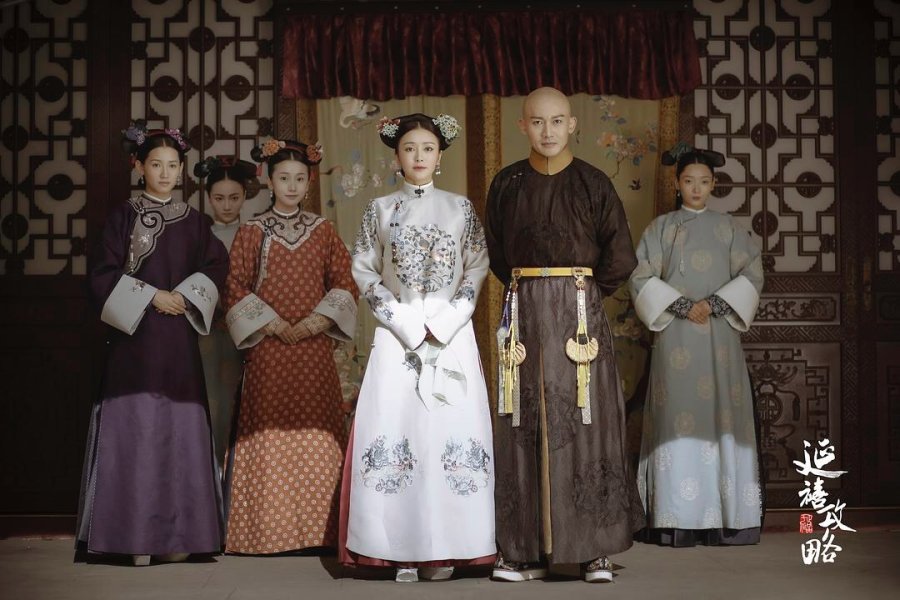
Since you have read this far, I think we have the same idea. Yes, it is pretty accurate to actual history. I think what this drama excelled at the most in a historical sense is depicting the goddess nature of Empress Fucha and her relationship with Emperor Qianlong. In the drama she's just so damn kind to everyone and the fact that they used Qin Lan's actual voice which is the most beautiful voice you'll ever hear makes her even more goddess-like.
However, she also knows when to be fierce to maintain order in the palace. This is just like how the real Empress Fucha was in history, very virtuous and a very respected Empress. You can also see the little details the drama added that show her highlighted personality traits. One example is that in the drama the Empress does wear artificial flowers when she's in her casual wear, just like in history as Empress Fucha was a frugal person. This is a stark contrast to the villainous Consort Gao (played by Tan Zhuo in the drama) you see in the drama that wears very glamorous jewelry all the time.
The drama also did an excellent job of showing the loving relationship between the Emperor and Empress as there are certain moments in the drama that shows that the Emperor clearly favors her over others and it also showed how much the Empress cared about him. Although the drama got some historical events right like when the Emperor had chickenpox and the Empress had to care for him, the Emperor holding off on declaring a new empress, etc., they did get some things wrong like the Empress committing suicide. But I feel like people that are super picky about whether this or that is historically accurate or not, tend to forget that a show or movie in a historical setting is not just there to make everything 100% accurate but its purpose is to provide entertainment to the audience. I know, how shocking that shows/movies are entertainment! When a director or scriptwriter or whatever thinks that this historical event is not entertaining enough for audiences then they'll change it up/dramatize it because it is their goal to make the audience keep watching it and wanting more. And for that, I don't see what's the problem in changing some things from history as long as they don't completely change everything, and their changes are not super crazy that it's unbelievable that this or that would happen.
In the Story of Yanxi Palace you can truly see that they tried their absolute best to keep everything authentic to history as much as possible; not just with their props, costumes, but also the story, as it maintains a lot of historical events as a foundation for the drama but some are executed in a way that is dramatized, but for the right purpose: to provide good entertainment. So high praises all around for the team behind the Story of Yanxi Palace!
Sources: Link, Link, Link, Link
(There were other websites that I used for my research but when I began writing this article I couldn't find them anymore so I guessed they were removed from the web. :/ )

